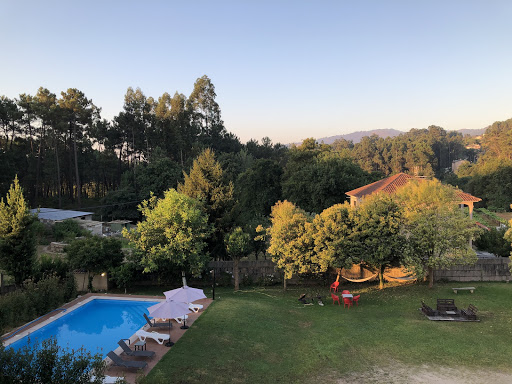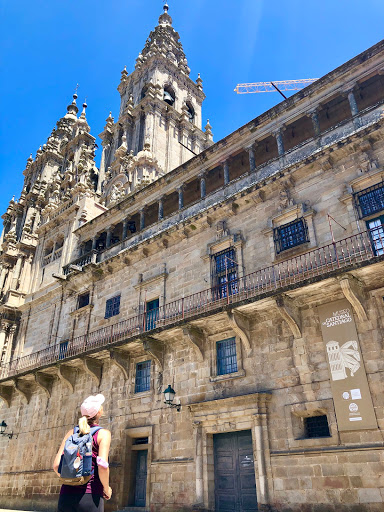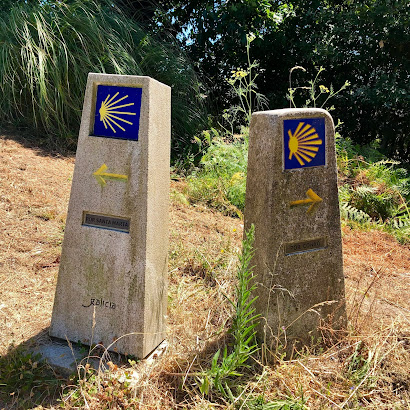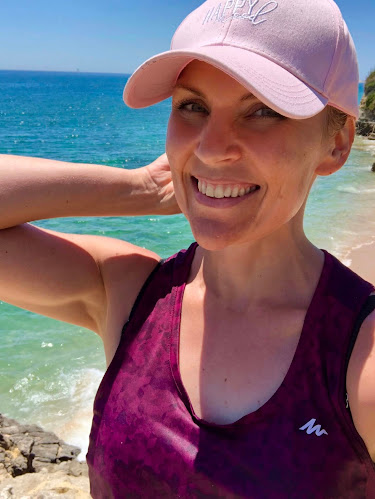It was always my dream to do the pilgrim walk to Santiago de Compostela so, when the leaders of my hiking group sent out an invitation to walk the last part of the Camiño de Santiago Portugués, I immediately accepted. There was no time to prepare, but after years of dreaming, I was more than ready for this challenge.
The adventure began with a twelve-hour car ride from southern Andalusia to Tui in northern Spain, our starting point close to the Portuguese border. Twelve hours in a van with a group of Sevillanos, all of us wearing our face masks of course. Spaniards are known to speak faster than bullets leave machine guns and the decibel of their speech has been recorded as one of the highest in the world, which may be why life in Spain often reminds me of a book title by Jonathan Safran Foer: Extremely loud and incredibly close.
Only when we arrived at our first hostel did one of the women that I was sharing a room with say to the other: "Turn down the volume, please - we're in Galicia now."
 |
| Our first hostel had a pool, which was heaven after a long day of hiking |
 |
| Start of the Camino |
Our first encounter was with a Gypsy woman wailing on the side of the road as we drove through a small Portuguese town. We didn't speak her language so the villagers explained that today was the day of her husband's funeral, he had committed suicide a week earlier and left her here on their doorstep with his pain. I tried to look into her eyes but she saw nothing and heard no one; even surrounded by people eager to console, she was alone with her grief and somehow, she will have to move on and find a new normal.
On our first day of walking, I started thinking about what I need to be happy, and I came to the conclusion that I really don't need much. I certainly don't need many material things - of all the clothes I brought for the Camino, I could have done just as well with half. The lighter the backpack, the easier the walk.
Along the path, there are many messages and signs and one that you will see everywhere is the Latin word Ultreia, which means "May you go further than the stars." Amongst poetry painted on walls and hearts carved into trees, we came across a yellow and blue pair of shoes with a sign saying: "Yo hago Camino, NO maratón - I'm doing the walk, NOT a marathon." The path is the destination, hence there is no need to run towards the finish line. There should always be enough time to take a break, enjoy the surroundings, gaze at the goats, swim in the waterfalls, and watch the stars at night.
After a few days, I felt comfortable enough to let go of the need to engage in conversation all the time. Sometimes, I would walk by myself, other times in silence with someone next to me. Occasionally, an interesting topic would come up and we would walk and talk until we were out of breath. However, I also learned the skill of tuning out from the incessant chatter around me and tuning in to the sounds of nature instead. Whenever my mind would wander too far off the path, something would happen to bring my attention back, like when we were drawn into the forest by the enchanting music coming from two bagpipers standing behind a stone cross.
One of my biggest challenges was being hungry most of the time. On the second day, I only ate a small salad, which led to feeling weak and unmotivated on the third day. The hostels we stayed at served a good breakfast and during the walk, I would munch on dried fruit and nuts, but as much as we were moving, it wasn't enough. I hadn't realized that finding gluten-free vegan food would be so complicated in Galicia, or else perhaps I would have prepared differently.
On the other hand, there were other things that I had unnecessarily worried about before the trip, such as getting lost. The Camino is very well marked, all you have to do is follow the signs. Not having the right clothes was also a concern, just like blisters, sore legs, or a possible arthritis flare-up, none of which happened even though I didn't even have proper hiking shoes. I did the whole walk in my Nike trainers and it was absolutely fine.
Obviously, we considered the risks of Covid-19, but we mostly stayed within our group, wearing face cover and maintaining distance. I feel much safer up in the mountains than out on the streets anyway. Sunburn and fatigue are also valid issues to keep in mind and there were definitely moments, even days when I didn't want to put one foot in front of the other anymore. To keep going, I would think of something a Finnish war veteran said when he visited my school long ago: "You'll be surprised at how far you can walk after you think you can't walk anymore."
In total, we walked 120 kilometers in six days. In order to get the official stamp and certificate, you need to walk at least 100 kilometers but, certificate in hand, I can assure you that this is not what the Camino is about. What matters more is reflecting, pushing your limits, finding something beautiful inside yourself, and learning from the people that you meet along the way.
They say that on the Camino, you will never walk alone. I experienced this through God's powerful presence, as churches and crosses are everywhere, but we also crossed paths with some interesting characters, for example, an elderly woman in a green bikini and a golden cross, who was feeding a goose on the beach. She told us that the bird's name was Chris, he's about six years old and she loves him more than her dog.
At a café by the side of the road, we met a man in his 80s with three golden crosses around his neck, selling charms in the shape of cats and shells. "Why does one have to die at 100?" he asked. "Can't they create one of those app things to make us live until 120?" His eyes sparkled as he made us laugh and buy more of his jewelry.
There was also a woman in her forties walking the Camino on her own and we immediately bonded as it turned out that she was a language teacher like me and about to start a yoga teacher training, too. Then there was a wrinkly Portuguese man with a feathered cane walking in the opposite direction as well as two Australian dudes slowly limping and smoking their way forward on the path.
On the last day, I walked mostly on my own until another group of Sevillanos caught up with me at a crossroads where I had stopped, unsure of which way to choose. "Are you afraid of us?" they laughed behind their masks, nudging me with their elbows and using silly voices to ask me for a picture. A group of guys in their thirties, they were convinced it doesn't matter whether you go left or right so I followed them to the left. We chatted as we entered the city of Santiago de Compostela together and they asked me about my ambitions in life.
Reaching the cathedral is one ambition that I have now completed. As I stood there looking up, surrounded by new friends, I thought of all the other pilgrims who have come before me, and those who have yet to arrive. I thought of how one adventure is really just the beginning of another, and how many of us choose different paths in life or advance at a different speed than others, yet eventually, we reach the same destination. After all, as spiritual teacher Ram Dass observed: "We are all just walking each other home."
 |
| In front of the Cathedral in Santiago de Compostela |















